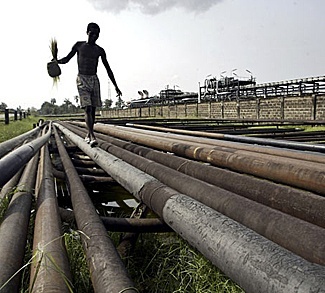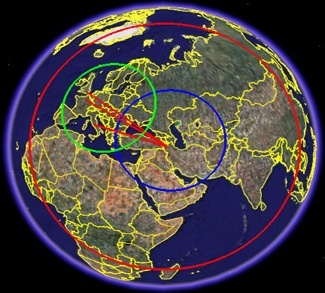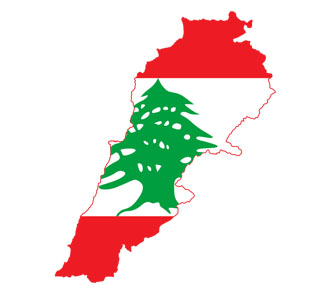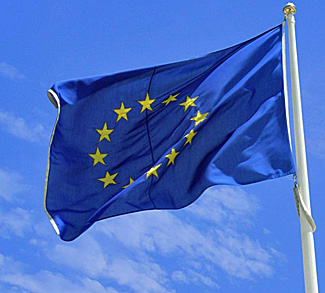FORECAST
As long as the root causes of dissent still exist in the Niger Delta, any lull in violence that the Nigerian government’s offer for an amnesty produces will likely be short lived.
The Nigerian government’s offer of amnesty to Niger Delta militants, though not the first of its kind, appears to be in good faith. The 50 billion naira deal offers militants an opportunity to trade in their guns for criminal immunity, and in some cases education and training opportunities. Interestingly, the initial deal did not extend amnesty to the Movement for the Emancipation of the Niger Delta (MEND) leader Henry Okah, who is currently on trial for treason.
However, it appears that last week’s MEND attacks on Shell installations – attacks in defiance of the amnesty – have changed President Umaru Yar’Adua’s mind. As of July 1st, the Nigerian government’s amnesty offer has been extended to include the incarcerated MEND leader, an attempt to make the deal sweet enough to avert further MEND attacks in the short-term.
The Nigerian government definitely has a stake in how MEND responds. Not only will some other delta militants take their cues from how MEND reacts to the amnesty, but last week’s attack on Shell facilities reportedly took out half of Nigeria’s oil output, resulting in a brief spike in global oil prices.
The Nigerian government’s attempt to ‘divide and conquer’ militants in the Niger Delta could end up backfiring. The amnesty deal is aimed at separating the militants who engage in industrial sabotage for personal profit from those with political motivations; in the words of the MEND leadership, “separating the wheat from the chaff.” Those militants who are engaged in sabotage and theft for personal profit will end up reaping the rewards of the amnesty, and thus increase the appeal of a life of militancy in the eyes of those who have no real economic opportunities.
The amnesty has definitely had its takers. On June 28th, militant leader Solomon Ndigbara, nicknamed ‘Osama Bin Laden’, turned in his guns and ordered his force of sixty some-odd fighters to do the same. There are further reports indicating that the allure of amnesty is creating divisions within MEND itself, a trend that could increase now that the amnesty has extended to cover Henry Okah.
Acting leader General Boyloaf has claimed that MEND would not fire another bullet if the amnesty deal was extended to include their leader. While it seems that the temporary MEND leadership is willing to jump through any hoops that are required to free Mr. Okah, there is no reason to believe that after he is free, the fight will not continue. Importantly, the amnesty deal still does not include any federal system of distribution for Niger Delta oil wealth, one of MEND’s consistent demands.
Any pacifying effect that the amnesty deal will have in the delta will be short lived. Current humanitarian conditions make violence and sabotage one of the only ways to meet basic economic needs. According to a recently released Amnesty International report, the Delta remains extremely underdeveloped and pollution from oil refineries continues to destroy farmland and fishing stocks. Living conditions serve as a reservoir for the recruitment of militants, if not into MEND, then some other group. Thus, violence will persist.
SUMMARY OF EVENTS: June 22 – 29, 2009
NORTH AMERICA
United States
The U.S. has sent weapons to the Somali government, which is battling opposition fighters in clashes that have left hundreds dead.
Saddam Hussein feared Iran’s arsenal more than a U.S. attack, and even considered asking ex-President George W. Bush “to protect” Iraq from its neighbor, once secret FBI files show.
The White House dismissed reports Friday that it has drafted an executive order allowing indefinite detention in the United States of some of the top terror suspects at Guantanamo Bay.
WESTERN EUROPE
Britain
A confidential record of a meeting between President Bush and Tony Blair before the invasion of Iraq, outlining their intention to go to war without a second United Nations resolution, will be an explosive issue for the official inquiry into the UK’s role in toppling Saddam Hussein.
Al-Qaeda is intent on using the internet to launch a cyber-warfare campaign against Britain, Lord West, the Security Minister, has warned.
EASTERN EUROPE
Russia
The head of Russia’s Muslim region of Ingushetia was seriously injured on Monday in a suicide bomb attack that weakened the Kremlin’s fragile grip on the North Caucasus.
Kyrgyzstan played a “dirty trick” in deciding to let the United States keep using an airbase that Moscow wanted closed, a source in the Russian foreign ministry was quoted as saying.
MIDDLE EAST
Iran
Iranian Foreign Ministry spokesman Hassan Qashqavi has accused Western nations and media of supporting violent protests in an attempt to create anarchy and split apart the Islamic Republic.
Political tensions in Iran are rising, with senior figures in the Islamic Republic considering whether to depose Supreme Leader Ayatollah Ali Khamenei, an Arabic-language TV channel said.
The Iranian opposition leader Mirhossein Mousavi is under 24-hour guard by secret police and no longer able to speak freely to supporters, according to the film director Mohsen Makhmalbaf.
Saaed Mortazavi, an Iranian prosecutor who was responsible for ordering over 100 newspapers closed and dozens of bloggers and journalists arrested, tortured and in some cases, killed, has been empowered to interrogate Iran’s opposition leaders, according to published reports.
A leading Iranian religious leader has called for the execution of “rioters” who have led a series of anti-government protests following the country’s disputed June 12 presidential election.
Iraq
A bomb killed at least 72 people on Wednesday at a busy market in eastern Baghdad’s Sadr City slum, police said, six days before U.S. combat troops are due to withdraw from Iraqi towns and cities.
Israel
The Israeli government denied a media report Tuesday that it had authorized 300 new homes for a Jewish settlement in the occupied West Bank despite U.S. calls for a halt to settlement growth.
The Israeli Army stepped up its presence along the border with Lebanon deploying armored tanks and setting up fortifications as it intensified airspace violations in the area, Lebanon’s state-run National News Agency reported Thursday.
Saudi Arabia
Documents gathered by lawyers for the families of Sept. 11 victims provide new evidence of extensive financial support for Al Qaeda and other extremist groups by members of the Saudi royal family, but the material may never find its way into court because of legal and diplomatic obstacles.
Turkey
Turkey’s army chief Ilker Basbug on Friday called for an end to speculation about an alleged plot to bring down the government, denouncing what he called a smear campaign against the military.
EAST ASIA
China
China has defended its export policies after the United States and European Union complained to the World Trade Organisation (WTO) they violated international trade rules.
Prominent Chinese dissident Liu Xiaobo, a leading force behind a petition calling for democratic reforms, has been formally arrested for subversive activities, state media said Wednesday.
Japan
North Korea has banned ships from a wide area off its east coast, Japan’s Coast Guard said, raising speculation of more missile launches amid a tense nuclear standoff.
North Korea
North Korea threatened Wednesday to wipe the United States off the map as Washington and its allies watched for signs the regime will launch a series of missiles in the coming days.
SOUTH ASIA
Pakistan
Two soldiers were killed on Friday in the first suicide bombing in Pakistani Kashmir, while three people were killed and seven wounded in two bomb blasts in militant-infested areas near the Afghan border.
AFRICA
Madagascar
Madagascar’s president said in comments published Tuesday the man he ousted as the country’s leader was planning a coup in a bid to come back to power.
Nigeria
Nigerian rebels said they carried out a pre-dawn attack against Royal Dutch Shell facilities in a warning to Russia not to invest in the country’s oil and gas industry.
OCEANA
Australia
Australia’s Prime Minister Kevin Rudd was facing his biggest political crisis on Monday with rivals accusing his government of abuse of power and a belligerent Senate poised to reject a key election promise.




